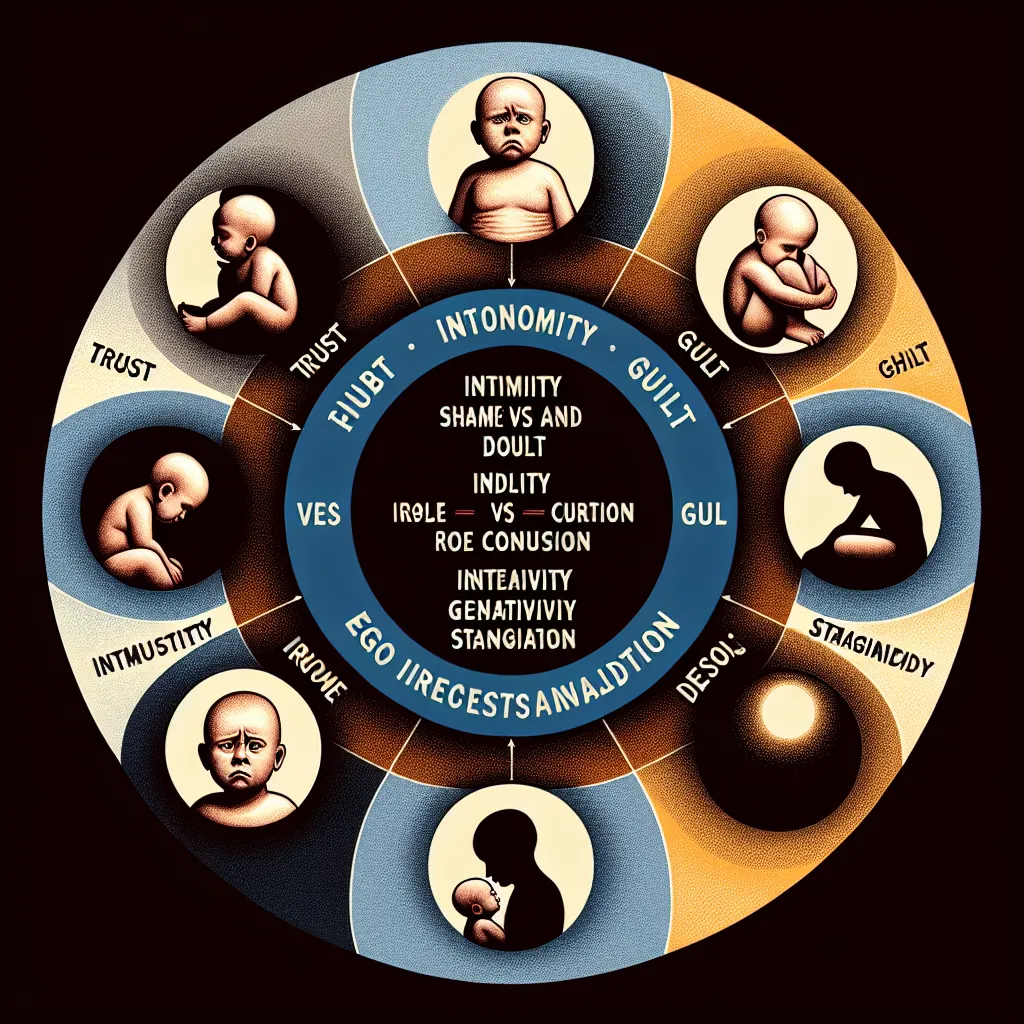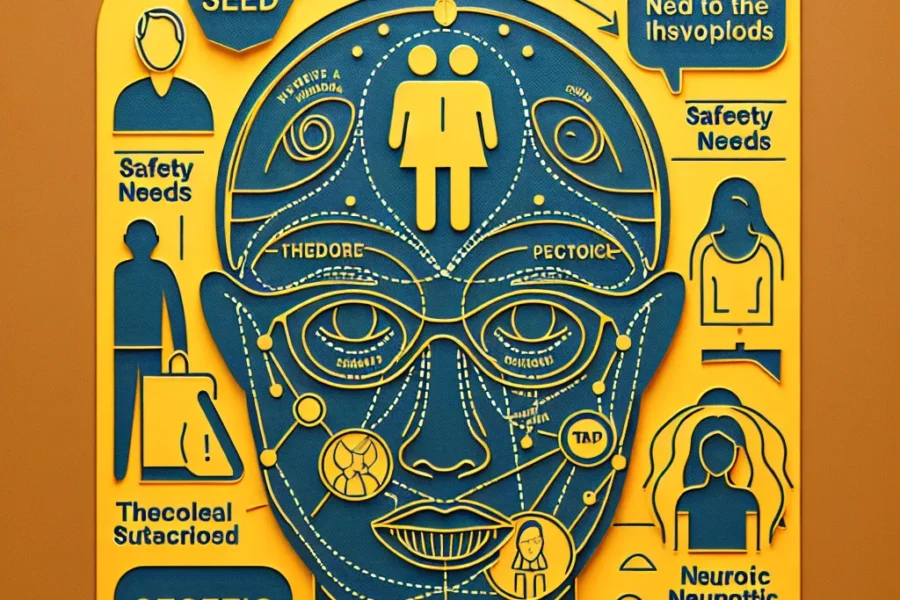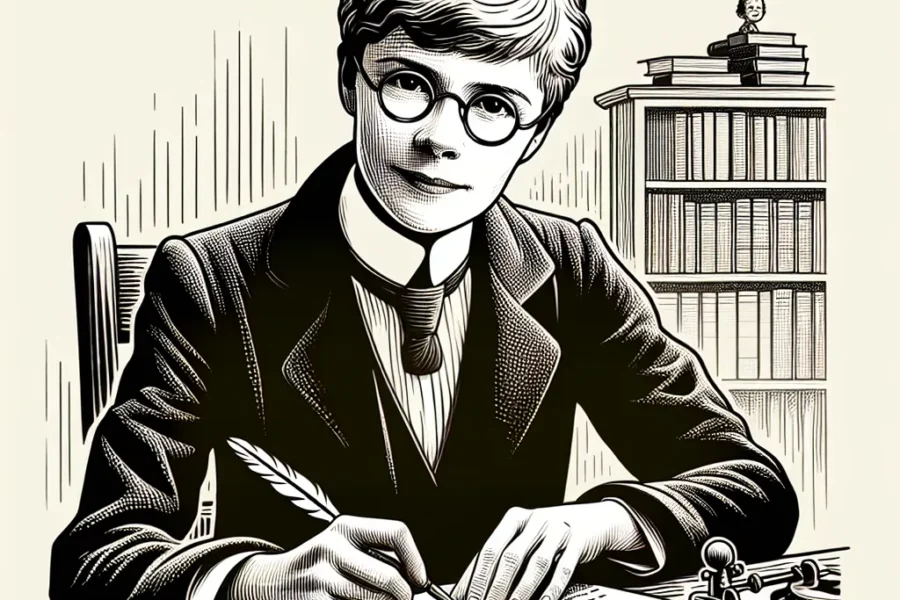Erik Erikson’s Contributions to Understanding Human Growth
Erik Erikson, a renowned developmental psychologist and psychoanalyst, made significant contributions to the field of human development. His theories offer a comprehensive framework for understanding the growth and evolution of human beings from infancy to adulthood. Among his most influential works is the theory of psychosocial development, which emphasizes the impact of social experience across eight stages of human growth. This article delves into the essence of Erikson’s vision and its enduring impact on our understanding of human development.
Erikson’s Journey and Theoretical Foundations
Born in 1902, Erik Erikson’s own life experiences played a pivotal role in shaping his theoretical perspectives. His search for identity, which is central to his theory, was personally significant as he navigated the interplay of culture, society, and personal development. Erikson’s interest in culture and society led him to study the socialization processes of various cultural groups, a pursuit that broadened his insight into the universality and diversity of human growth.
Central to Erikson’s theories was the Freudian concept of psychosexual development. However, Erikson extended this framework by focusing more on psychosocial challenges and the influence of culture, society, and historical context. He postulated that the ego played a crucial role in navigating these psychosocial stages, which was a departure from Freud’s focus on the id.
Erikson’s Stages of Psychosocial Development
Erikson’s landmark contribution was his eight-stage theory of psychosocial development. Each stage presents a conflict or challenge that the individual must resolve to develop a healthy personality and acquire virtues useful in the next stages of life. The eight stages are as follows:
1. Trust vs. Mistrust (Infancy): In this initial stage, infants learn to trust or mistrust their caregivers and the world based on whether their basic needs are met reliably.
2. Autonomy vs. Shame and Doubt (Toddlerhood): As toddlers begin to assert their independence, successful resolution of this stage leads to a sense of autonomy, while failure results in feelings of shame and doubt.
3. Initiative vs. Guilt (Early Childhood): Children learn to initiate activities and interact with others. Successful resolution fosters a sense of initiative, whereas failure may result in excessive guilt.
4. Industry vs. Inferiority (School Age): During school years, children work towards competence and self-esteem. Mastering this stage leads to a sense of industry, while failure can result in feelings of inferiority.
5. Identity vs. Role Confusion (Adolescence): Adolescents explore different roles and ideas to form a personal identity. Success in this stage leads to fidelity, while failure results in role confusion.
6. Intimacy vs. Isolation (Young Adulthood): Young adults seek intimate relationships, with success leading to loving relationships and failure resulting in isolation and loneliness.
7. Generativity vs. Stagnation (Middle Adulthood): Individuals strive to create or nurture things that will outlast them, often by parenting or other contributions to society, leading to a sense of generativity. Failure to achieve this results in feelings of stagnation.
8. Ego Integrity vs. Despair (Later Life): In this final stage, reflection on life either results in feelings of satisfaction (integrity) or despair over missed opportunities and wrong decisions.
Applications and Influence of Erikson’s Theory
Erikson’s theory of psychosocial development has had far-reaching effects on various fields including psychology, education, and psychotherapy. Educators apply his concepts to shape curriculums that address the social and emotional needs of students at various developmental stages. Psychotherapists use Erikson’s framework to address conflicts and crises related to different life stages.
Erikson’s stages also provide a lens for examining cultural and societal shifts, as each stage reflects the challenges faced by individuals within a specific context. As such, his work is invaluable for sociologists and anthropologists studying human behavior within a diverse range of cultural settings.
Furthermore, Erikson’s emphasis on identity formation during adolescence has significantly influenced research on teen development, leading to programs that support positive youth development. This focus also offers valuable insight for parents and caregivers, guiding them in supporting children and adolescents through their developmental hurdles.
Critiques and Contemporary Viewpoints
While Erikson’s theories opened new avenues in developmental psychology, there have been critiques and calls for revisions. Critics point out that the stages may not be as linear as Erikson suggested and that individuals might revisit previous conflicts later in life. Others argue that the theory may be overly focused on Western cultural contexts and not fully applicable to non-Western societies.
In response, contemporary research on human growth frequently incorporates cross-cultural perspectives and acknowledges the more fluid nature of development. Nonetheless, Erikson’s emphasis on the interplay between individual growth and social influences remains a cornerstone in understanding human development.
The Legacy of Erikson
Erikson’s vision has continued to inspire countless professionals and scholars in the field of human development. His holistic approach has prompted further research into the integration of the individual psyche with the broader social environment, leading to a richer, more nuanced understanding of human potential and challenges.
The stages of psychosocial development, while sometimes revised or critiqued, remain relevant in exploring the unique journey of growth that each person undergoes. From infancy to the later years, his theory provides a map of the crucial psychosocial milestones that shape our lives.
Conclusion
Erik Erikson’s contributions to the understanding of human growth and development are monumental. His psychosocial stages provide a valuable framework that continues to influence modern psychology, education, and counseling. By incorporating both the psychological and the social aspects of growth, Erikson’s model transcends the limitations of earlier developmental theories and remains a vital tool for those seeking to understand the complex interplay of factors that shape our journey from cradle to grave.
Erikson’s legacy endures, and his impact can be seen in current approaches to developmental psychology, which continue to evolve to incorporate contemporary societal and cultural complexities. His work stands as a testament to the enduring quest to comprehend the full spectrum of human life, its struggles, triumphs, and the universal search for identity and meaning.



Leave a Comment